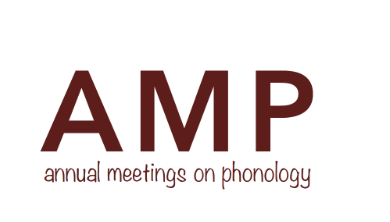The distribution of tone affects prosodic parsing in Beijing Mandarin: Evidence from retroflex lenition
Abstract
Stress in (Beijing) Mandarin, or the lack thereof, is a topic under much debate in the literature. Retroflex lenition, an optional phenomenon that occurs in fast speech, is sensitive to segment duration, which provides insight into prosodically weak positions in the language. I propose that retroflex lenition occurs on the weak syllable of a trochee and surfaces as phonetically short, and neutral-tone syllables are always parsed on this unstressed position. In other words, the distribution of tones can affect prosodic parsing. Neutral-tone syllables are not only lenition-triggering based on their phonetic properties but also their prosodic positions. I provide an analysis in Optimality Theory to capture the lenition sites for neutral-tone retroflex syllables. I analyze and discuss lenition as a phenomenon that sits at the phonetics-phonology interface, syntax-prosody interface, and that demonstrates tone-prosody interactions.
How to Cite:
Wang, R., (2025) “The distribution of tone affects prosodic parsing in Beijing Mandarin: Evidence from retroflex lenition”, Proceedings of the Annual Meetings on Phonology 1(1). doi: https://doi.org/10.7275/amphonology.3039
Downloads:
Download PDF
469 Views
229 Downloads
